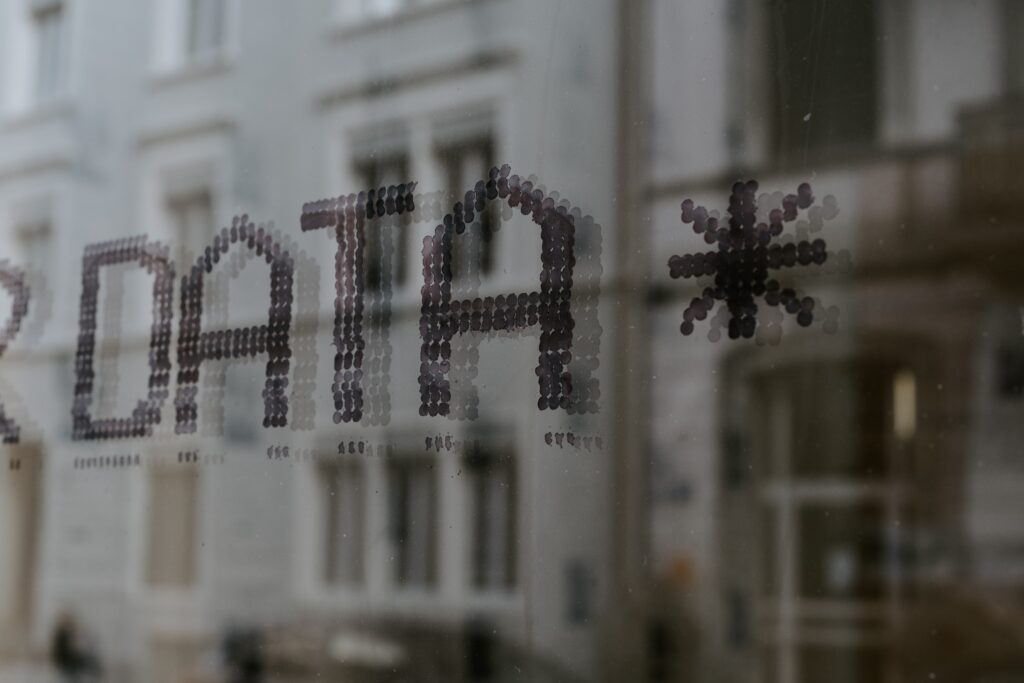
Photo by Claudio Schwarz on Unsplash
“The kind of computer algorithms and data encryption standards that secure the flow of digital communication and data, … is part of our ubiquitous, yet invisible, digital infrastructure and a cornerstone in data protection and privacy”
(Bruun et al.,2020, p.13)
Introduction
The trouble in the post-pandemic era is that if technologies such as remote proctoring become a permanent defacto solution to digital assessments practices, it does so without a critical understanding of its broader effect within education establishments. As (Steedman et al., 2020) describe, this can lead to ‘complex ecologies of trust’, which if not understood fully could result in ‘feelings of trust or distrust in data practices’ (Steedman et al., 2020, p.823).
By introducing this concept Steedman, 2020 emphasises the complexities of trust relationships that exist in data-driven systems and practices. He proposes that there are multiple layers of impacts to trust, not just the accepted notions of generalised and particular trust which are rooted in localised or individualised solutions.
In particular, he argues that there is a need to ‘take account of the multiple factors that engender, maintain or undermine trust in data-driven systems, including experience, perception, understanding and feelings as they relate to organisations, services, people and practices.’ (Steedman et al., 2020, p.825)
Activity 1
Please read the article entitled Why Don’t You Trust Us? by Sinéad Doyle (2021) (20 mins)
(Doyle, 2021) argues that the emergence of this technology especially within higher education is placing students in a difficult place where they are ‘left to decide what they value more—their education, or their privacy’
This leaves students in a ‘vulnerable position, when they are already being stripped of their privacy’ which when we consider the impact on our digital futures, could alter ‘the professional relationship between professors and students’ (Doyle, 2021, p.24)
Activity 2
Please watch the video by Rachel Botsman who poses;
‘We’re starting to realize that institutional trust wasn’t designed for the digital age. Conventions of how trust is built, managed, lost and repaired — in brands, leaders and entire systems — is being turned upside down’
(Botsman, 2016)
‘We’ve stopped trusting institutions and started trusting strangers’ by TED (Youtube) is licenced by creative commons CC BY 3.0
Question: If data practices in the use of remote proctoring technologies are leading to an erosion of trust, what does this means for institutional trust within the education sector?
Please use this Padlet to upload your thoughts to this question and the questions raised in this video.
Data privacy
It would seem careless of organisations such as Higher education to not study these data ecosystems given that it has the potential for ‘participants did not trust practices’ (Steedman et al., 2020, p.824). Yet as (Steadman et al., 2020) concludes, data-driven services such as proctoring are flourishing even if there is a sense of ‘digital resignation’ among users of these services. Draper and Turow (2019) introduced the term’ digital resignation’, which may explain how students feel they have no power to alter or control their data privacy.
If students feel powerless to stem the change around surveillance technologies in regards to their wellbeing and privacy, does this not show that we neglect the importance of developing ‘critical digital literacies’ Kester & Schneier (2021).
This apparent lack of transparency is compounded by a recent report by Advance HE which concluded that ‘online proctoring does impact on student anxiety levels and can negatively impact student performance, particularly for students who experience anxiety in their daily lives.’ (Pitt, E, 2021, p.140).
Question: If a critical stance is not taken among higher education institutions against these findings, what does this signal to users concerning the future use of proctoring tools and the ethics of student surveillance?
Please use this Padlet to upload your thoughts to this question.
Secondary readings
Chin, M. (2020, Apr 29) EXAM ANXIETY: HOW REMOTE TEST-PROCTORING IS CREEPING STUDENTS OUT- As schools go remote, so do tests and so does surveillance. The Verge. https://www.theverge.com/2020/4/29/21232777/examity-remote-test-proctoring-online-class-education
Nguyen, N. (2021, December 2) Online proctored exam: Are you really trusting your students? FeedbackFruits. https://feedbackfruits.com/blog/online-proctoring-alternative-assessment
References
Bruun, M.H., Andersen, A.O. and Mannov, A. (2020) ‘Infrastructures of trust and distrust: The politics and ethics of emerging cryptographic technologies’, Anthropology Today, 36(2), pp. 13–17. https://rai.onlinelibrary.wiley.com/doi/10.1111/1467-8322.12562
Doyle, S 2021. Why Don’t You Trust Us?’, The Journal of Interactive Technology and Pedagogy, Issue. 20, https://jitp.commons.gc.cuny.edu/why-dont-you-trust-us/
Draper, N. A., & Turow, J. (2019). The corporate cultivation of digital resignation. New Media & Society, 21(8), 1824–1839. https://doi.org/10.1177/1461444819833331 [Crossref], [Web of Science ®], [Google Scholar]
Johnston, SF (2018) Alvin Weinberg and the promotion of the technological fix. Technology and Culture 59(3): 620–651. http://eprints.gla.ac.uk/134435/
Kester, J & Schneier, J (2021) Soft Surveillance: Social Media Filter Bubbles as an Invitation to Critical Digital Literacies. The Journal of Interactive Technology and Pedagogy, Issue. 20, https://jitp.commons.gc.cuny.edu/soft-surveillance-social-media-filter-bubbles-as-an-invitation-to-critical-digital-literacies/
Pitt, Edd (2021) Introduction: assessment and feedback in a post-pandemic era. Assessment and Feedback in a Post-Pandemic Era: A Time for Learning and Inclusion. In: Baughan, Patrick, ed. Assessment and Feedback in a Post-Pandemic Era: A Time for Learning and Inclusion. Advance HE, UK, pp. 5-9. (KAR id:90382)
Selwyn, N. (2021) ‘Ed-Tech Within Limits: Anticipating educational technology in times of environmental crisis’, E-Learning and Digital Media, 18(5), pp. 496–510. doi:10.1177/20427530211022951.
Steedman, R., Kennedy, H. and Jones, R. (2020) ‘Complex ecologies of trust in data practices and data-driven systems’, Information, Communication & Society, 23(6), pp. 817–832. doi:10.1080/1369118X.2020.1748090.
Botsman, R. (2016, June). We’ve stopped trusting institutions and started trusting strangers [Video]. TED Conferences.https://www.ted.com/talks/rachel_botsman_we_ve_stopped_trusting_institutions_and_started_trusting_strangers
Digital Futures for Education by s1064867 is licensed under a Creative Commons Attribution-NonCommercial-ShareAlike CC BY-NC-SA 4.0.

